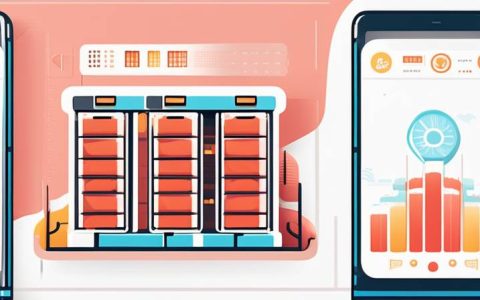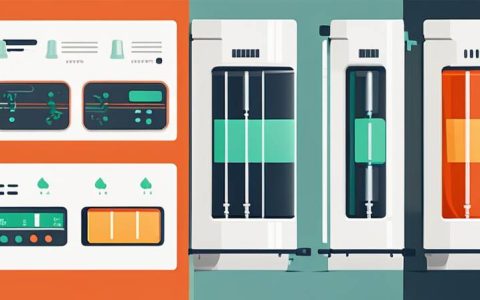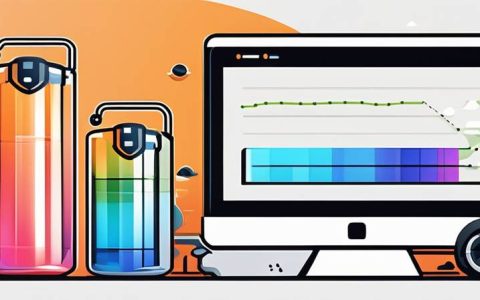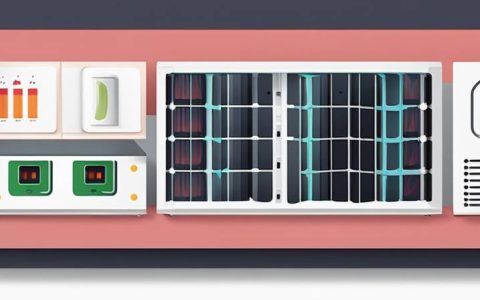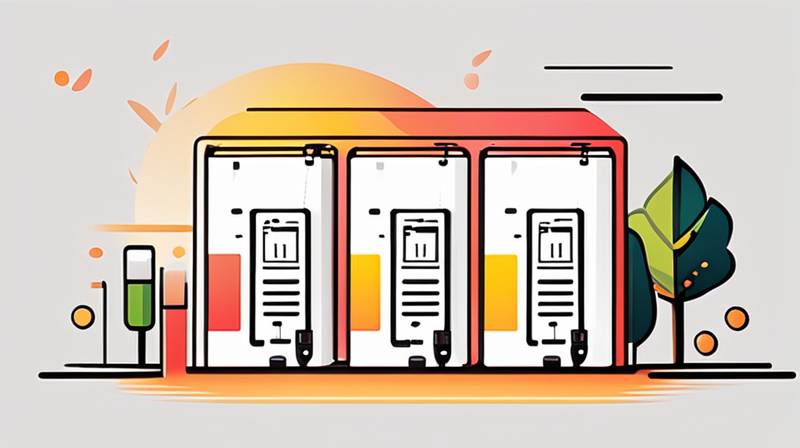
1. What is PV Energy Storage?
PV energy storage refers to the systems that accumulate and retain energy produced from photovoltaic (PV) solar panels for later usage. 1. It consists of batteries or other energy storage devices that allow solar power to be used when the sun isn’t shining. 2. This technology enhances energy efficiency by ensuring a seamless supply of electricity throughout the day and night. 3. PV energy storage solutions can reduce reliance on the grid, lower energy costs, and contribute to a more sustainable ecosystem. 4. They enable grid stability by storing excess energy and providing backup during outages. For example, batteries such as lithium-ion are commonly used due to their high energy density and efficiency in absorbing and discharging energy. This accumulation of solar energy benefits both homeowners and businesses, facilitating a transition toward renewable energy sources while ensuring energy independence and resilience to fluctuating energy prices.
1. UNDERSTANDING PHOTOVOLTAIC ENERGY
Photovoltaic energy originates from the conversion of sunlight into electricity through semiconductor materials, primarily silicon, found in solar panels. This process occurs via the photovoltaic effect, where absorbed photons dislodge electrons, generating direct current (DC) electricity. The significance of photovoltaic technology lies in its ability to generate clean energy, which diminishes reliance on fossil fuels and mitigates environmental degradation.
The solar industry’s expansion has facilitated advancements in PV technology, boosting efficiency and decreasing costs. Modern solar panels boast conversion efficiencies exceeding 20%, and ongoing research aims to enhance this further. As technology evolves, the adoption of solar energy becomes more accessible for both residential and commercial entities, leading to widespread integration into energy markets.
2. PV ENERGY STORAGE SYSTEMS
There are various types of energy storage solutions for PV energy, including batteries, pumped hydro storage, and thermal energy storage. Batteries play a crucial role in enabling energy storage, as they are capable of absorbing excess energy during peak production periods and discharging it during high consumption periods or low generation times. Lithium-ion batteries remain a popular choice due to their efficiency and longevity, while emerging alternatives, such as solid-state and flow batteries, promise even greater advancements.
Pumped hydro storage systems utilize gravitational potential energy, where water is pumped to a higher elevation during excess energy production and released to generate electricity when needed. Thermal energy storage captures heat generated by solar collectors, which can be stored and used later. These varied approaches enhance the resilience and robustness of the energy grid.
3. THE BENEFITS OF ENERGY STORAGE IN PV SYSTEMS
Integrating energy storage within PV systems leads to numerous advantages. First and foremost, it increases energy self-sufficiency, allowing users to become less reliant on traditional energy sources and reducing electricity bills. By harnessing solar energy generated during the day, users can store this energy for evening consumption, which is particularly beneficial for households and businesses with high energy needs during non-solar hours.
Furthermore, energy storage contributes to grid stabilization, smoothing out fluctuations caused by variable renewable energy generation. This stabilization is crucial for maintaining a steady energy supply, especially during periods of high demand. By providing stored energy back to the grid, users can also offset demand charges and potentially earn income through net metering or demand response programs.
4. ENVIRONMENTAL IMPACT AND SUSTAINABILITY
The deployment of PV energy storage systems significantly contributes to environmental sustainability. Solar energy production is a clean, renewable process that generates minimal pollution compared to fossil fuel extraction and combustion. The integration of energy storage allows for a higher penetration of renewable energy into the grid, paving the way for an energy transition that aligns with global sustainability goals.
Additionally, batteries used in energy storage systems can be recycled, mitigating the potential environmental impacts of battery disposal. Advances in battery technology are focused not only on efficiency but also on sustainability, exploring new materials and recycling methods that reduce waste and promote circular economy principles.
5. CHALLENGES IN PV ENERGY STORAGE
While promising, the development and deployment of energy storage technologies face hurdles. One significant challenge is the initial cost associated with purchasing and installing energy storage systems. Although prices have decreased over time, the upfront investment can still be a barrier for many consumers. However, incentives and financing options are increasingly made available to alleviate these costs.
Additionally, there are technical challenges related to battery performance and reliability. As consumer expectations grow regarding storage duration and efficiency, manufacturers are driven to enhance battery technology continuously. Innovations in energy density, lifecycle longevity, and safety features are essential in overcoming these barriers.
6. THE FUTURE OF PV ENERGY STORAGE
The trajectory of PV energy storage is becoming increasingly optimistic with rapid advancements in technology. Research and development efforts are focusing on enhancing battery performance, longevity, and recyclability to meet growing demands. Furthermore, government initiatives and corporate investments are promoting cleaner energy portfolios and improved storage capabilities.
The rise of smart grid technologies also plays a pivotal role in enhancing energy management and integration. These technologies optimize energy usage patterns, aligning supply with demand efficiently, which can significantly enhance the effectiveness of storage systems alongside solar generation. The increasing adoption of Electric Vehicles (EVs) is poised to drive further innovation and integration due to their potential to act as mobile energy storage units.
FAQs
WHAT ARE THE DIFFERENT TYPES OF BATTERIES USED FOR PV ENERGY STORAGE?
Several battery technologies are suitable for storing energy generated by PV systems. Lithium-ion batteries are currently the most prevalent due to their efficiency, compactness, and reliability. They offer high energy density, meaning they can store more energy relative to their size, making them ideal for residential installations.
Lead-acid batteries, while older technology, are still used in some applications due to their low cost, although they have shorter lifespans and lower efficiency compared to lithium-ion. Flow batteries represent a novel approach, using liquid electrolytes, allowing for scalable energy storage systems that can be beneficial for commercial applications.
Lastly, solid-state batteries are emerging as a promising technology, aiming to offer even greater safety and energy density while reducing environmental impacts associated with traditional battery manufacturing.
HOW DOES PV ENERGY STORAGE ENHANCE ENERGY EFFICIENCY?
PV energy storage enhances energy efficiency by enabling the optimal use of solar energy. During daylight hours, solar panels often generate more electricity than is immediately required, leading to surplus energy. Energy storage systems capture this surplus, allowing users to consume that energy later, especially during periods of high demand, such as in the evening.
This capability reduces dependence on grid-supplied electricity when it is most expensive, creating significant cost savings for consumers. Additionally, by promoting self-consumption of renewable energy, the impact on fossil fuel dependency is minimized, supporting both economic and environmental sustainability.
WHAT IS THE EXPECTED LIFESPAN OF PV ENERGY STORAGE SYSTEMS?
The lifespan of PV energy storage systems largely depends on the technology used, but generally, lithium-ion batteries typically last 10 to 15 years, often with warranties supporting this claim. Regular maintenance and proper usage can further extend their operational efficiency.
Lead-acid batteries tend to have a shorter lifespan, around 3 to 5 years, while emerging technologies like flow batteries may offer lifespans exceeding 20 years due to their modular design. However, factors such as usage patterns, charge cycles, and environmental conditions play critical roles in determining the actual lifespan of these systems.
Each technology presents distinct benefits and challenges regarding longevity and efficiency, thereby influencing the overall feasibility of PV energy storage systems based on individual applications and requirements.
The utilization of PV energy storage marks a transformative stride toward sustainable energy consumption and management. It encapsulates a progressive vision where energy harnessed through solar photovoltaic technology is not only produced but effectively stored for adaptive use. The systemic interplay of technological advancements, economic incentives, and environmental considerations facilitates the growth and adoption of energy storage solutions. This alignment of interests supports the overarching goal of energy resilience, grid stability, and the promotion of renewable energy’s pivotal role in addressing contemporary climate challenges. As society embraces a sustainable future, the evolution of PV energy storage continues to reaffirm its significance, providing innovative pathways to achieving energy independence and stability amid an ever-evolving energy landscape. Continued investments in technology research, coupled with supportive policies, promise to further enhance the viability and attractiveness of PV energy storage solutions. The path forward is illuminated by potentialities that resonate through every aspect of energy economics, user empowerment, and ecological responsibility.
Original article by NenPower, If reposted, please credit the source: https://nenpower.com/blog/what-is-pv-energy-storage/




